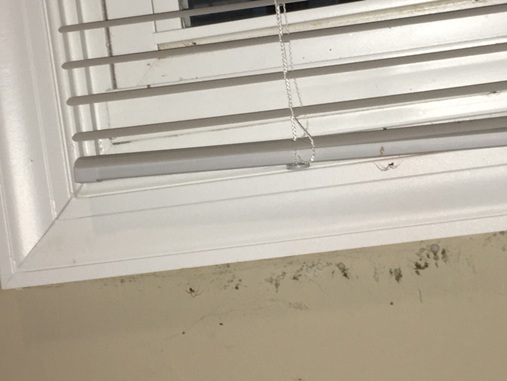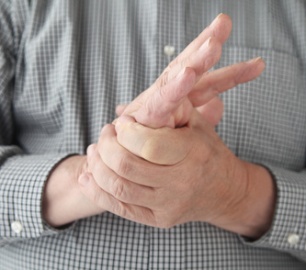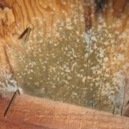Find a pre-screened local mold removal specialist Free Estimate
Find a Mold Specialist Now
Click or Call, Toll-Free 24/7
Tingling and Numbness
From Mold Exposure
You may already know mold exposure in the home can cause health problems like sinus infections, fatigue, headaches, and asthma attacks, but did you know it can lead to serious conditions like pneumonia, pulmonary hemorrhage, and tingling and numbness in the hands or feet? More research needs to be done to determine exactly why and how mold causes these illnesses. However, there is much that doctors and scientists know already. We’ll explain what we understand about the unique effects of mold exposure and what you can do if you think you are suffering from it.
Why Does Mold Cause Tingling and Numbness?
When your home suffers water damage or has excess moisture, mold can start to grow. Mold can grow just about anywhere, including on your floors, inside your walls, or on carpeting. If the mold is not discovered quickly, airborne levels of mold spores will continue to increase. When mold is absorbed through the lungs, it can lead to neurological issues, including a condition called peripheral neuropathy, where the nerves are damaged.
According to the U.S. National Institutes of Health (NIH), mold exposure can cause peripheral neuropathy, which gives us that mysterious tingling and numbness feeling. These uncomfortable sensations occur because our peripheral nervous systems are comprised of many motor and sensory nerves which connect the spinal cord to the brain. The nervous system is responsible for communicating critical messages between our sensory organs, nerves, brain, and spinal cord. When the system is disrupted by traumatic injury, vascular diseases, mental health conditions, or, in this case, mold exposure, it communicates that it is in trouble, which is why we feel neurological effects.
Symptoms of Peripheral Neuropathy
No matter the cause, the symptoms of this condition can include:
- Loss of sensation and/or itching in the hands and/or feet
- Moderate to severe nerve pain in the extremities
- Muscle weakness in the limbs
- Burning sensation in the hands and/or feet
- Hand tremors
- Tingling and numbness
- Sensitivity to touch
- Lightheadedness
People who have this type of neuropathy may also have trouble walking or experience heat intolerance, dizziness, and increased sweating. They may also have changes in their blood pressure and problems going to the bathroom. Here is more about the neurological symptoms of mold exposure.
Besides mold exposure, there are a variety of medically-related reasons why patients may have neuropathic symptoms, including conditions like lyme disease, diabetes, lupus, rheumatoid arthritis, HIV, shingles, hepatitis C, Epstein-Barr virus, liver disease, alcoholism, benign tumors and growths, and cancer. Since peripheral neuropathy is often a sign of a serious illness, it is important to see your doctor right away if you think you have it.
 Mold under window on wall
Mold under window on wallTalking to Your Doctor
Whether or not your symptoms are from mold exposure, making an appointment with your doctor can help you determine if the tingling and numbness is caused by an environmental issue or medical disease. In addition to those above, other reasons for peripheral neuropathy include B12 deficiency, nerve damage from an injury or car accident, connective tissue disorders, exposure to heavy metals, inherited genetic disorders, and skin trauma.
Whatever the cause, the effects may be able to be reversed if caught quickly. If they are not treated, you may deal with the effects over the long-term, which can significantly affect your quality of life. To help prevent further damage and improve your prognosis, your doctor will review your health history and do a thorough physical exam. While they evaluate you, be sure to explain all your symptoms, including respiratory problems, fatigue, or mood issues like anxiety or depression. Tell them how long you have been experiencing these issues and if anyone else in your home is having the same symptoms. You can also tell your doctor what you think may be causing them and if you suspect the peripheral neuropathy could be from mold exposure.
To determine the cause of your illness, your physician may order a variety of medical tests, including a blood test, CT scan, MRI, nerve function test, nerve biopsy, or skin biopsy. Depending on their findings, you may also be referred to a specialist like a neurologist, psychiatrist, neurosurgeon, allergy specialist, or ear, nose, and throat doctor. It is important to be patient while you and your physician are working to determine the cause, especially while you are ruling out other illnesses. In the meantime, it may be beneficial to do mold testing in your home, particularly if you have noticed a musty odor or if you recently had water damage from a leak or storm.
Checking Your Home for Signs of Mold
It is always beneficial to have a mold inspection completed if you think your illness could be caused by exposure to mold in the home. It may also help your physician quickly determine the cause of your symptoms. An experienced professional can thoroughly examine your home to see if mold is present and come up with a plan for further testing and/or remediation, if necessary.
In addition, mold removal may be able to reduce or eliminate your symptoms of tingling and numbness, so be sure to schedule a free in-home consultation with an experienced mold removal company in your area. They can look for signs of mold in your home and perform a clean and convenient removal, if needed. Let a professional evaluation provide you with expert advice at no-cost. Follow this link to find qualified mold removal professionals in your community. If you do need to have mold removed, be sure to ask your physician if it is safe for you to remain in your home during the removal process.
Free Home Inspection By A Mold Removal Specialist
Search This Website

Recent Articles
-
See Our 5 Recommended Mold Removal Companies in Covington, KY
Apr 16, 25 12:59 PM
-
See Our 5 Recommended Mold Removal Companies in Wheaton, IL
Jun 20, 24 10:33 AM
-
See Our 5 Recommended Mold Removal Companies in Aberdeen, SD
Oct 08, 21 04:05 PM




